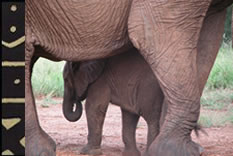Helping communities
1993-2019
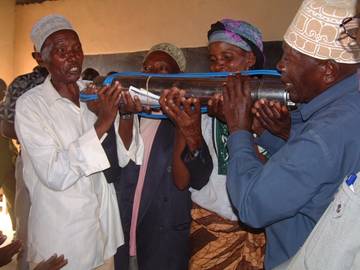 |
| Village elder receiving a water pump |
In 1989, when the restoration of the Mkomazi Game Reserve was declared a National Priority Project, the Tanzanian Government and the Trusts also agreed that, when the rehabilitation programmes were underway, they would establish community programmes for the residents of the villages surrounding the reserve. This would be a huge task, encompassing 41 villages within three districts, and would run alongside a programme to help the pastoralists living between the border of the reserve and the local villages at the foot of the Pare and Usambara Mountains.
The Mkomazi Game Reserve Outreach Programme was started in 1993 at the request of the Tanzanian Government. It was originally developed and coordinated by Harrie Simons and the late Truus Nicolasen. They had initiated a programme of self-help development on a long-term basis. Their work centered mainly on education, medical assistance, women’s groups, agricultural practices and water management. The women’s groups dedicated their time and resources to health, irrigation, education, agricultural and economic issues. Close cooperation with the communities was vital for the sustainable development of this precious national resource, whilst trying to address the critical needs of the communities.
Our long term commitment was to ensure that the local communities benefitted from the presence of the game reserve/national park. During the course of the outreach programme, we were able to fund the construction of an entire secondary school (now expanded for tertiary education) and the construction and upgrading of classrooms in a further 30 primary and secondary schools.
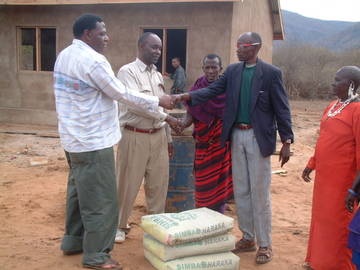
Although the focus was on improving education, we also supported water management and water provision projects including the survey, drilling and sinking of a borehole to provide water for a neighbouring village and the building and de-silting of dams within the reserve to provide alternative dry season water sources for large mammals.
Community conservation safaris were undertaken in the villages to discuss the history and aims of the project and to identify priority needs of each village and to determine where the trust and the Wildlife Division could assist. Various other projects were supported which included the deployment of heavy plant machinery to the villages for various municipal works, support for the annual national polio vaccination campaigns, support for three women’s groups, assistance for the Mkomazi Game Reserve Football Team, support for the refurbishment of a local medical dispensary and assistance towards bursaries for tuition fees for pupils to attend
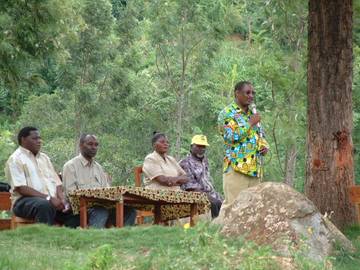
university, secondary school, primary school and teacher training college. We helped equip a physiotherapy unit for disabled children and funded the salary of a teacher at a primary school.
Environmental Education Programme – ‘Rafiki wa Faru’
The Rafiki wa Faru programme really was one of the best things we have ever done in the local communities and for the school children in those communities. 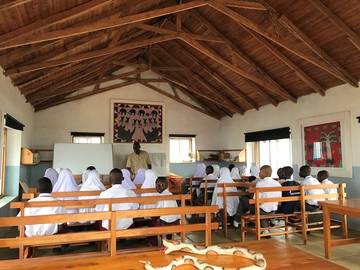 The project was focused on the black rhino and also brought into focus the African wild dog, the rehabilitation of the National Park and the conservation efforts of the Trusts and TANAPA. It was very popular amongst the local communities, the schools and the students and was a very important component of attaining the overall conservation goals of the whole project.
The project was focused on the black rhino and also brought into focus the African wild dog, the rehabilitation of the National Park and the conservation efforts of the Trusts and TANAPA. It was very popular amongst the local communities, the schools and the students and was a very important component of attaining the overall conservation goals of the whole project. 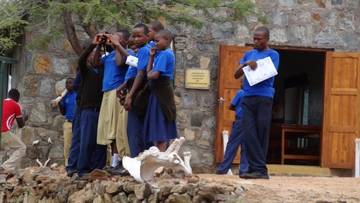 Based on the importance of winning the hearts and minds of the local communities, the teaching was about the flagship species – the black rhino – and engaging the learners in positive environmental action as an effort to help ensure the long-term security of the species. Save the Rhino International, USF&WS, Chester Zoo and Tusk Trust helped develop and fund this programme.
Based on the importance of winning the hearts and minds of the local communities, the teaching was about the flagship species – the black rhino – and engaging the learners in positive environmental action as an effort to help ensure the long-term security of the species. Save the Rhino International, USF&WS, Chester Zoo and Tusk Trust helped develop and fund this programme.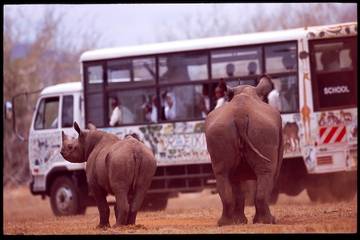
Gonja Mheza Rhino Vocational Training Centre
In 2012, a feasibility study was commissioned for the establishment of a vocational training centre (VTC) in the Gonja area. This study clearly indicated that the communities, the youth themselves, as well as the Ward Councillor and village leaders felt the need for a VTC in the area. The operations manager of GAWPT, Elisaria Nnko, having worked with the Ward Councillor and the village elders on the secondary school building projects felt that this was a village where the concept of a VTC could be practically carried out and a partnership formed. 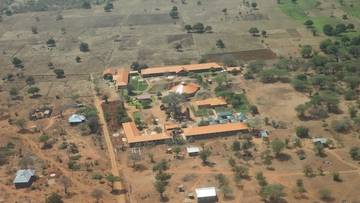 In close discussion between GAWPT and Suzuki Rhino Club of the Netherlands, it was agreed that they would go ahead setting up a partnership and finding additional resources for construction of the VTC.
In close discussion between GAWPT and Suzuki Rhino Club of the Netherlands, it was agreed that they would go ahead setting up a partnership and finding additional resources for construction of the VTC.
The goal of the project was to build and run a fully sponsored private VTC with 100 boarders and 200-day schoolboys. The school became a trust with board members from the local/district government, donors and the Roman Catholic Diocese of Same. The Roman Catholic Diocese of Same is responsible for the day-to-day management and administration of the VTC and the district government authorities ensure that the school works within the appropriate government regulations. The youth of the Gonja area have very low employment possibilities so the project aimed to ensure that these young people will be taught skills and trades to enable them to find jobs. The subjects to be taught are welding/metal work, carpentry, masonry, electricity, car repairs and mechanics, farming and agriculture, and computer lessons.
After an amazing fundraising event in Holland with SSRC, and in a partnership with three foundations, a huge and sustained effort went into constructing and equipping the Gonja Mheza Rhino VTC. In 2014, the foundation stone was laid by the Prime Minister of Tanzania, Hon. Mizengo Pinda, and it was then formally opened by the RC Bishop of Same.
A donation of equipment and machinery was raised by SSRC. Other donations raised were put into the construction teacher housing, to supporting bursaries for the poorest students, to topping up the teachers’ salaries, to providing bulk food for the students, the construction of cow sheds and the purchase of cows so the students can have a regular milk supply, and for the purchase of agricultural land for growing crops for the students and staff to help the school become more self-sufficient.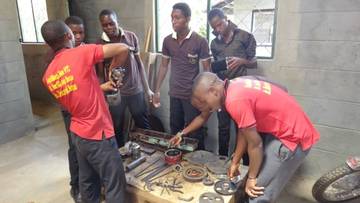
It has since been expanded to incorporate a secondary school. With this more thorough training, the students can therefore leave with a decent all-round education which puts them in better shape to face the job market. The VTC is run as a multi-denominational school and children of all faiths are welcome.

